Uniform Civil Code May Bring Disunity in India and Cause Humiliation to Minorities
Law Commission of India seeks suggestion from civil society on UCC till 15 July, 2023
By: M. Burhanuddin Qasmi
The public notice from LCI
The Law Commission of India (LCI) issued a fresh Public Notice dated 14 June, 2023 under subject line ‘Uniform Civil Code – Reg.’ and sought suggestions from common public, civil society members and all the stakeholders till the 15th of July, 2023. The Public Notice is published in the LCI website at https://lawcommissionofindia.nic.in/notice/uniform-civil-code-public-notice/ which reads as under:
“With regard to reference dated 17th June, 2016, sent by the Ministry of Law & Justice, the 22nd Law Commission of India is examining the subject matter of Uniform Civil Code. Initially the 21st Law Commission of India had examined the subject on Uniform Civil Code and solicited the views of all the stakeholders through its appeal along with a questionnaire dated 07.10.2016 and further public appeals/notices dated 19.03.2018, 27.03.2018 and 10.4.2018. Pursuant to the same, overwhelming responses have been received by the Commission. The 21st Law Commission has issued the consultation paper on “Reforms of Family Law” on 31.08.2018. Since more than three years have been lapsed from the date of issuance of the said Consultation Paper, bearing in mind the relevance and importance of the subject and also the various Court orders on the subject, the 22nd Law Commission of India considered it expedient to deliberate afresh over the subject. Accordingly, the 22nd Law Commission of India decided again to solicit views and ideas of the public at large and recognized religious organizations about the Uniform Civil Code. Those who are interested and willing may present their views within a period of 30 days from the date of Notice through “click here” button or by Email at membersecretary-lci@gov.in to the Law Commission of India. The concerned stakeholders are also at liberty to make their submissions in the form of consultation/ discussion/ working papers on any of the issues pertaining to the Uniform Civil Code to the ‘Member Secretary, Law Commission of India, 4th Floor, Lok Nayak Bhawan, Khan Market, New Delhi – 110 003.’ If need be, Commission may call upon any individual or organization for a personal hearing or discussion.”

The aforementioned Public Notice is viral in all major social media platforms, especially among Muslims, and the men of pens are replying, suggesting and writing to the LCI with zeal – in length and in short letters. The Non-Residential Indians (NRIs) are also seen to be writing to the LCI and actively participating in this ‘process of law making’, which is good for Indian democracy. But who will read all these piles of texts and what will be the outcome, will anybody even pay the least heave towards these sincere suggestions from the common men, only the LCI knows it. However, the Govt. of India has successfully brought this polarizing issue at the center stage once again after nearly five years as an easy political weapon to use in the upcoming 2024 general election.
Fundamental Right vs. Directive Principle
Articles 12-35 of Indian Constitution deal with Fundamental Rights. These basic human rights are conferred upon all the citizens of India. The Constitution tells that these rights are inviolable and irrevocable. There are six fundamental rights of Indian citizens, guaranteed by the Constitution which are:
- Right to Equality (Article 14-18)
- Right to Freedom (Article 19-22)
- Right against Exploitation (Article 23-24)
- Right to Freedom of Religion (Article 25-28)
- Cultural and Educational Rights (Article 29-30)
- Right to Constitutional Remedies (Article 32)
The article 25 of India’s Constitution is among the fundamental rights which reads: “… all persons are equally entitled to freedom of conscience and the right freely to profess, practice and propagate religion.”
On the contrary, the article 44 of the same Constitution is a Directive Principle which reads: “The State shall endeavour to secure for citizens a uniform civil code throughout the territory of India.”
A directive principle is a suggestion, it is an optional act and it cannot outdo any fundamental right of an Indian citizen. “The Directive Principles” denotes that it only created a ‘power’ and not a ‘duty’ for the future law makers of India. The Constituent Assembly of India after extensive discussion and debate was pleased to keep the Uniform Civil Code (UCC) merely an ‘endeavour’. It also indicates towards the fact that the UCC was then impractical in India’s multi religious and multi-cultural society and the same diverse demographic condition exists till date even with clearer identity lines.
As stated above, in addition to the article 25 of Indian Constitution, the article 26 and 29 are also among the ‘Rights of Citizens’. The article 26 is about “Freedom to manage religious affairs: … every religious denomination or any section thereof shall have the right (a) to establish and maintain institutions for religious and charitable purposes; (b) to manage its own affairs in matters of religion;…” The article 29 is about “Protection of interests of minorities: (1) Any section of the citizens residing in the territory of India or any part thereof having a distinct language, script or culture of its own shall have the right to conserve the same.”
The enactment of UCC will be in the teeth of various other articles of the Indian Constitution including the Fundamental Rights, strongly enshrined in articles 25, 26 and 29. An effort to make changes in the Muslim Personal Laws has always been considered an interference in the religion and religious practices by the Muslim Indians, thus it is totally against the constitutionally guaranteed fundamental rights. A Directive Principle cannot and must not abrogate any of the Fundamental Rights which will go against the basic principle of the Indian Constitution – decorated in its Preamble and it will also go against the illustrated democratic values of India’s ‘unity in diversity’ culture.
Why UCC is not possible in India?
Diversity is the beauty of India. The Indian constitution ensures “justice, social, economic and political” to all citizens. It has adopted measures for the protection of the rights of all religious and ethnic minorities and of all socially and economically disadvantaged classes such as the scheduled castes (SC) and scheduled tribes (ST) etc. As, different kinds of flowers add to the beauty of a garden, in the same way people with different cultures and colours are the beauty of this awesome country. This is the sole idea of India.
One country one law is not possible here. Adivasis have their own customs and cultural mores. A man can have many wives and a woman can have many husbands too. They have different ways of marriage and also different rituals for burying the dead. A large section of Hindus practices different religious customs in different places.
A comparative study of the personal laws of Hindus, Muslims and other minorities will reveal that the sheer diversity of these laws, coupled with the dogmatic zeal with which they are adhered to, cannot permit uniformity of any sort in personal laws. In fact, the heterogeneity of Hindu law itself is such that even the possibility of a uniform Hindu code is ruled out.

Talking of marriage alone, under the Hindu Marriage Act 1955, marriages may be solemnized in accordance with the rites and ceremonies of a variety of people who come under the definition of a Hindu. For instance, according to the ‘saptapadhi’ ‘(seven steps) form of marriage that is followed mostly in northern India, the marriage is deemed to be complete and binding when the couple take seven steps of rounds with the sacred fire – known as ‘saath phere’.
On the other hand, in the south of India ‘suyamariyathai’ (self-respect) and ‘seerthiruththa’ (reformed) forms of marriage are followed. Under these, the marriage is valid if the parties to the marriage declare in the presence of relatives that they are marrying each other, or if they garland each other, or put a ring on each other’s fingers or if the groom ties a ‘Thali’ or ‘Mangalyam’ (necklace) around the neck of the bride.
Likewise, in southern India, a Hindu man can get married to his cousin and even to his niece but in other parts of India, Hindu men cannot get married to their cousins and nieces.
Furthermore, for a marriage to be valid under the Hindu Marriage Act (HMA) 1955, it has to be solemnized in accordance with the customary rites and ceremonies of at least one of the parties. Thus, if a Jain marries a Buddhist by performing the rites of a Sikh, the marriage is invalid. [Sakuntala v Nilakantha 1972, Mah LR 31, cited in Family Law by Paras Divan]. Whereas, the Section 2(1) (b) of the HMA lays down that “any person who is a Buddhist, Jain or Sikh is also considered to be a Hindu…” Here within a single article of the Indian Constitution – HMA 1955, marriage rites of identical religious groups who are considered one within the Act, are not considered as homogenous rites.
These are just a few examples to bring home the idea that there are enormous cultural, religious, and ethnic diversities within India from state to state and region to region; and these all are within Indian Civil Laws. It, therefore, needs to be asked, if it is possible or practicable to reconcile these divergent laws and formulate a uniform or common civil code that will be acceptable to all communities.
India already has an optional civil code in the form of the Special Marriages Act 1954. This, read with similar acts such as the Indian Succession Act of 1925, provides a good legal framework for all matters of marriage, divorce, maintenance and succession for those who may wish to avoid the religion-based laws.
The Uniform Civil Code in India is an illusion, and a political claptrap. It is illogical as well as impossible to bring all jumping chickens in one narrow basket. So why this government is creating a hysteria among common men through Law Commission of India, is better known to Mr. Modi and people sitting in the realm of RSS headquarters in Nagpur. To me, such an exercise will invite disunity, chaos and cause disturbance among minorities within India and tarnish India’s image as a secular democratic country in the world.
The Muslim Personal Law (Shariat) Application Act, 1937
The Muslim personal law in India is not unconstitutional. Muslims here are governed by a set of uncodified laws which, like many other laws, has been borrowed from the British Laws. The Shariat Application Act which was enacted in the 7th of October, 1937 and enforced since then, that consists of six sections and regulates the application of Muslim Personal Laws in India. The Section 2 of the Act lists those matters which among Indian Muslims shall be invariably governed by the Muslim Personal Law. The Shariat Application Act, 1937 which extends to whole of India, which reads:
“Application of Personal Law to Muslims.—Notwithstanding any custom or usage to the contrary, in all questions (save questions relating to agricultural land) regarding intestate succession, special property of females, including personal properly inherited or obtained under contract or gift or any other provision of Personal Law. marriage, dissolution of marriage, including talaq, ila, zihar, lian, khula and mubaraat, maintenance, dower, guardianship, gifts, trusts and trust properties, and wakfs (other than charities and charitable institutions and charitable and religious endowments) the rule of decision in cases where the parties are Muslims shall be the Muslim Personal Law (Shariat).”
It is a common perception that the UCC will displace personal laws which govern marriage, divorce, inheritance and other family and social practices of all communities – including Muslims whose personal laws are part of their religion and worship. It is also noteworthy that personal laws are integral parts of all major religions and communities. Any tempering with personal laws would be equal to interfering with the whole way of life of people who had been following them from generation to generation with traditional pride and customary care. India is a secular state and it must not do anything that would jeopardize the people’s religious and cultural ethos.
Many communities particularly minority communities – Muslims, Christian and Sikhs et al, contemplate the UCC as an encroachment on their right to religious freedom and different identities. They fear that a common code will neglect their traditions and impose rules which will be mainly dictated and influenced by the majority religious communities or Brahmin laws. Constitution of India provides with the Right to freedom of religion of one’s choice. With codification of uniform rules and its compulsion, the scope of the freedom of religion will be reduced and heavily neglected.
An attempt to formulate and implement the Uniform Civil Code, mentioned in the Directive Principles of the Constitution under the Article 44, is bound to affect the Rights to Freedom of Religion and Minority Rights, duly assured in the Fundamental Rights in articles 12-35, which hold supremacy over all other provisions of the Constitution. As stated above, it may give rise to the communal disturbances across India and deface India’s image abroad. Thus, it is just and prudent to set aside the issue of UCC in the national interest – once and for all.
Burhanuddin Qasmi is the Director of Markazul Ma’arif Education and Research Centre and Editor of Easter Crescent, Mumbai

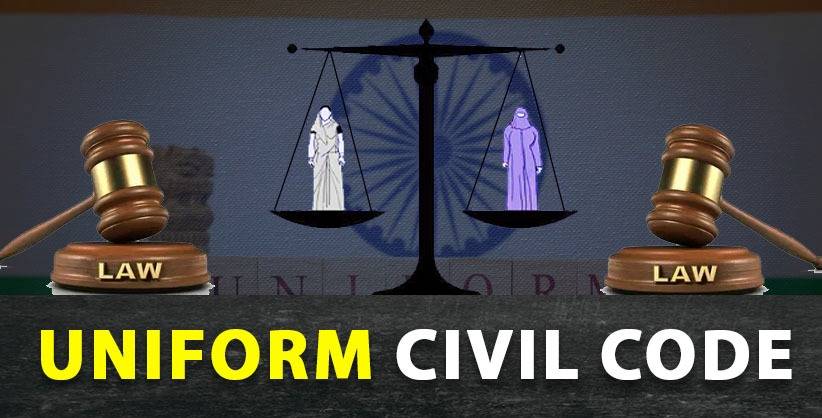



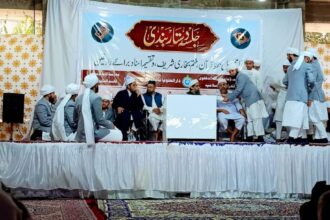
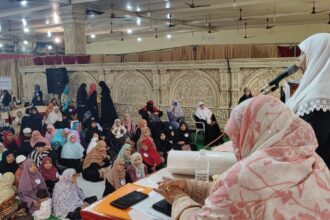


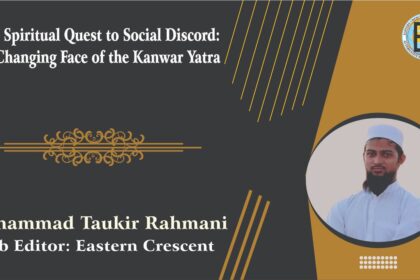
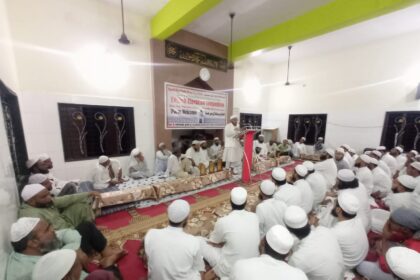
INDIA is a secular country which has different types of Religion and Traditions with different languages and it is harmful to impose uniform civil code in India.